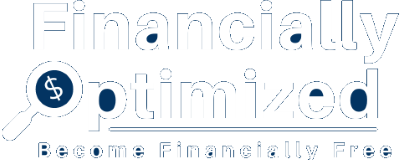Listen to Audio Version
est. rdg. time: 9 min 55 sec
The Backstory
 In the spring of 2010, my fiancé and I were about to get married. We were (and still are) a great fit intellectually, professionally, and personally. She had an accounting degree plus a great job working for an internet marketing company. I was in my last year of college taking all sorts of business classes and I was also heavily involved in an internet marketing internship. Ever since I was 17, I knew I wanted to be an entrepreneur and own my own business. Because of our backgrounds in internet marketing we naturally gravitated towards starting an online retail company. So while attending school, doing an internship and with my wife working full time, we started several eCommerce stores (more about the stores coming soon).
In the spring of 2010, my fiancé and I were about to get married. We were (and still are) a great fit intellectually, professionally, and personally. She had an accounting degree plus a great job working for an internet marketing company. I was in my last year of college taking all sorts of business classes and I was also heavily involved in an internet marketing internship. Ever since I was 17, I knew I wanted to be an entrepreneur and own my own business. Because of our backgrounds in internet marketing we naturally gravitated towards starting an online retail company. So while attending school, doing an internship and with my wife working full time, we started several eCommerce stores (more about the stores coming soon).
Near the end of the above mentioned internship (and just after starting the online business), I was offered a full time position with the company with a clear path to becoming the internet marketing director for the company upon graduation (which was coming up about 9 months after the job offer). It was a good summer job – I’d be making $15/hr in 2011 which I thought was solid income for a college student. Yet, my little eCommerce business was just starting to show some promise – maybe bringing in $400/mo. I was grateful to have options, but making the decision was not easy…
The Problem: Do I work for someone else, or build a business?
I had this feeling in the back of my mind that I knew I wanted to be my own boss. After hours upon hours of discussion and analysis, we decided to take a risk and go full bore into entrepreneurship by doubling down on the eCommerce business for the entire summer instead of taking the job. Ultimately, we looked at our situation and realized that with my wife having her strong paying job that summer, and our low living expenses, that it was worth the risk to go for it all summer on our business venture. I turned down $15/hr full time guaranteed for a job that would have me working 70 hour weeks for little pay.
Do the math here – 70 hr weeks X 4 weeks a month = 280 hours/month. $500/mo of income from the ecommerce business divided by 280 hours /month. I was working for $1.78/hr most of that summer. My ROI was not great!
Risk Assessment: Low Risk, Moderate Upside Potential (I might improve it to make more than $1.78/hr), Very Low Downside (wife’s job was solid and could cover us)
Worst case scenario: I don’t earn much all summer and work very hard (and learn a lot). Wife has strong job so we can still make the house payment and pay for my schooling.
 By the time graduation came around I had a decision to make – the websites were maybe making a grand total of just under $1000/mo profit – not enough to support our small growing family even though we lived frugally. But, they showed some promise and I knew I could get them to more sales.
By the time graduation came around I had a decision to make – the websites were maybe making a grand total of just under $1000/mo profit – not enough to support our small growing family even though we lived frugally. But, they showed some promise and I knew I could get them to more sales.
And by that time we had just had our first baby, so we had that expense and my wife was not planning to go back to her job. So with those factors, the question remained: Do I get a job and work for someone else’s bottom line? Or do I double down again on my own? We did the math… we had exactly 6 months of emergency funds available at that point. We decided to give ourselves 6 months. If the websites weren’t paying the bills within 6 months, I’d go find a job.
Risk Assessment: Medium Risk, High Upside Potential (it could actually work), Low Downside Potential (we didn’t have much to lose)
Worst Case Scenario: The business fails, I go get a normal job. Slight possibility we’d lose our house if we couldn’t make payments (not likely though since renters pay 90% of mortgage – but if we did, we’d end up moving in with my wife’s parents for a time. Still not the end of the world!
The Result: By 4 months after graduation the eCommerce business was profitable enough to cover our monthly expenses (I think our expenses were around $3,000/mo at that point).
A Word on Regret
There was a time when I was pretty good at volleyball. I was blessed with the opportunity to walk on to a very high level college volleyball program. I only lasted one day – saw schedule and the team and the coaching staff and decided that I didn’t think it was worth it to dedicate my life to the sport I enjoyed. I worried it would take away from the joy I had for it and many other interests because of the time commitment and other reasons. But now I’ll never know if I would have even made the team or if I would have had any sort of significant contribution to the team.
I see starting a business in a similar light – you could regret not trying. Starting a business is probably one of the best reasons for leaving a job. If you do the analysis properly and set yourself up financially with the proper safety net, you’ll be able to start a business, learn a ton along the way, and if it doesn’t end up working out, you’ll have no regrets. You can move forward, learn from the experience, know you tried, and probably will have learned a lot more along the startup path than you would any other way. Either you succeed and set yourself up for potentially huge impact on the world, or you fail. And remember, to fail simply means your “first attempt in learning”.
Lessons Learned
*First, a Word Of Caution*
Before taking a risk to quit your job to start/build a business it’s imperative that you have the proper personal financial foundation. This foundation, when followed, will allow you to feel confident in your decision to move forward and take risk. Be sure to check out our Financial Foundations course that teaches the proper foundation to build in order to proceed with major life decisions and the impact on your finances. [link to the foundations course here]
Lesson # 1 – The Importance of an Emergency Fund
 An emergency fund acts like a cushion if you fall and it may allow you to take additional risk. My wife and I had built up a 6 month emergency fund which we could rely on completely if the business made zero dollars. Well, the business was making some money (very little at the time of graduation maybe $1000/mo). But that $1,000 did cover nearly one third of our living expenses so we only tapped into two thirds of the emergency fund that first month.
An emergency fund acts like a cushion if you fall and it may allow you to take additional risk. My wife and I had built up a 6 month emergency fund which we could rely on completely if the business made zero dollars. Well, the business was making some money (very little at the time of graduation maybe $1000/mo). But that $1,000 did cover nearly one third of our living expenses so we only tapped into two thirds of the emergency fund that first month.
I should mention (so that I don’t get in trouble later) that the 6 month emergency fund was from my frugal wife and her hard work. To this day, I call her my “angel investor”. Her seed money is a huge reason why we felt comfortable taking the risk to build the company full time instead of going out to get a job.
Lesson # 2 – Analyze The Worst Case Scenario & The Best Case Scenario
What Do We Have to Lose?
This is an important question to ask when doing any risk assessment:
- What is the worst case scenario?
- Are you okay with the worst case scenario happening?
- What impact would that have on your life (and those who rely on you)?
We think these questions are so important to think through/consider for your personal risk assessment that we have provided them in a worksheet {insert link to downloadable worksheet} in the study guide section at the end of this article.
*Note: For more on fear setting, check out this amazing post on the Tim Ferris blog (https://tim.blog/2017/05/15/fear-setting/)
What Would You Learn From “Failure”?
- What would failure look like?
- Would you be able to live with the worst case or failure?
- What would you have learned if it did fail?
- What would you have gained from trying?
- How would you be a better person for going for it?
But What If Everything Goes Right?
- What would it look like to have everything go right?
- How would your life be changed?
- How would your income be changed?
Lesson #3: Importance of Mentors/Sounding Boards
We can only see 180 degrees in the moment. We pull from our own experience to make decisions. Those around us can see the full 360 degrees and mentors you look up to likely have a lot more experience to draw from to give advice. It’s important to have mentors in your life that have the experience that you don’t. Reach out to those mentors – their answers will be valuable data for your decision making process.
A wise mentor, during the time I was deciding what to do and where to go with my energy and trajectory, suggested I look at my life at more of a macro level. When in our life would we have less to lose than we have now? If things didn’t go well with the business, the worst case scenario for us would be that I go get a job like every other 23 year old would do after college. Was I confident I could get a job? Yes. So the next question was, am I comfortable with the potential of losing our recently purchased house? Yes – we could move in with the in-laws until we figured out our next step. Was that a likely outcome? Heck no – we were renting out our basement which paid 90% of our mortgage, remember?
Personal Financial Foundation Principles Applied
Important foundation principles that had a significant influence in my ability to move forward in faith:
- We were living frugal and within a budget.
- We had no consumer debt (no credit card, auto, or student loans)
- The only debt we had was paid for by others – we purchased a house and rented out the basement so our mortgage expense was nearly zero each month (an almost perfect “House Hack” [link to this case study coming soon]).
- We had built up a 6 month emergency fund that we could live off of completely should something not go as planned.
- We sought guidance from experts/mentors to be sure we could see the whole picture before making a decision.
Listen to Audio Version
For Additional Study…
For further exploration and learning…
Ask yourself the following questions about the above article:
- If you are facing a similar question of whether to quit your job to start a business, what is the worst case scenario for you either way?
- Are you okay with the above worst case scenario happening?
- What if it was a massive success? And which is more likely?
- What principles impacted you the most in the article above?
- What ways do you feel weak in your preparation financially for this step you plan to take?
- What actions come to mind for you to improve your financial defenses before taking this step?
- How will it feel different once you have improved your financial defenses in the ways you’ve listed above?
Click Here to Download PDF printable study guide to apply what you learn where these questions and more are available for additional study and exploration.
We have written case studies to provide examples of the principles taught in this article.
- Bulletproof Your Emergency Fund – including a template for building your own bulletproof emergency savings/reserve account [coming soon]
- How to Reduce Your Living Expenses – The House Hack Case Study [coming soon]
- How to Pay Off Your House 5 times Faster – The Live in Flip Case Study [coming soon]
Additional Resources on the Subject
- Personal Financial Foundations Course – Your First Step to Becoming Financially Independent. It’s the secret sauce to give you the proper foundation for financial success. [coming soon]
- Personal Finances – Free Self Reliance Course (by the ChurchofJesusChrist.org)
Our Favorite Books on the Subject
- Cashflow Quadrant by Robert Kiyosaki
- Emyth Revisted by Michael Gerber
- Lean Startup by Eric Reis
- Millionaire Fastlane by MJ Demarco
Check out our Free Financial Calculators Page for helpful calculators to guide your financial planning and decision making.
Who Needs This in Their Life? Share it…
Did you think of someone that could benefit from this free and transforming information in their life? We dare you to share this post with someone – the more you give, the more you receive.
No Results Found
The page you requested could not be found. Try refining your search, or use the navigation above to locate the post.
About the Author

Chris Watkins
Financially Independent at 34 with 4 kids, a beautiful wife, and a goal to empower you to become financially free.
About the Site
Financially Optimized
To empower you to become financially free so that your time and talents can be all in on solving bigger challenges than just surviving.


